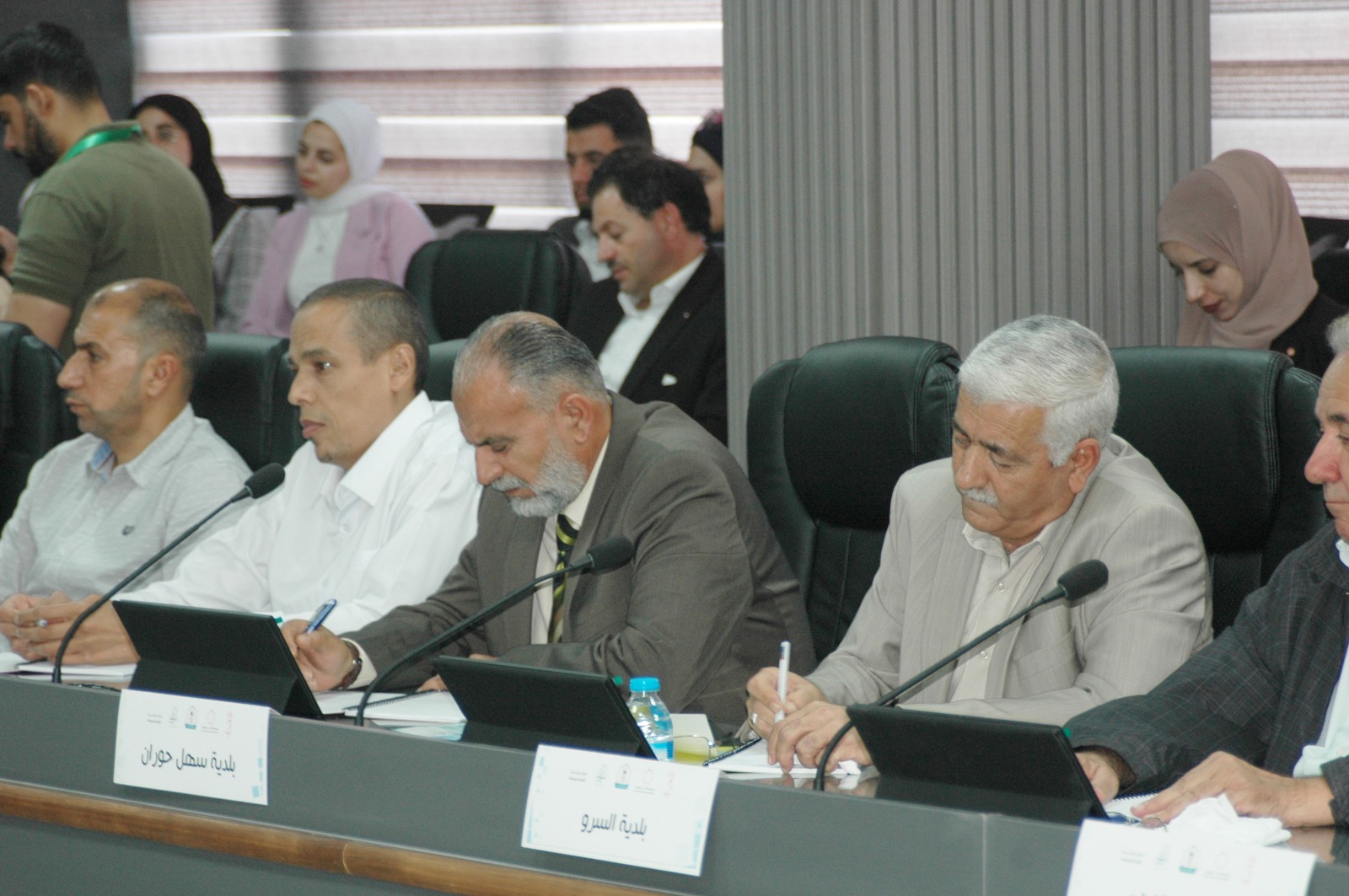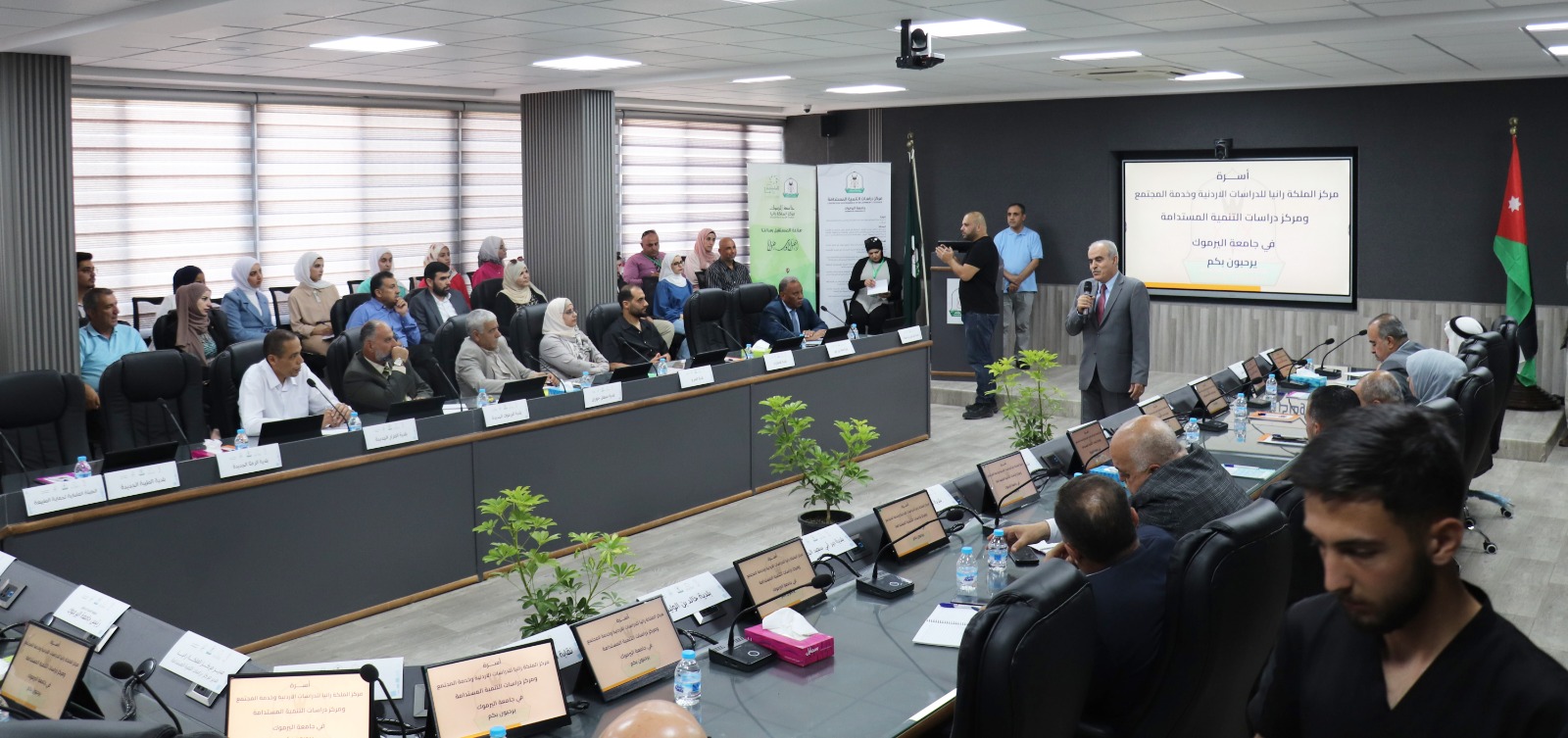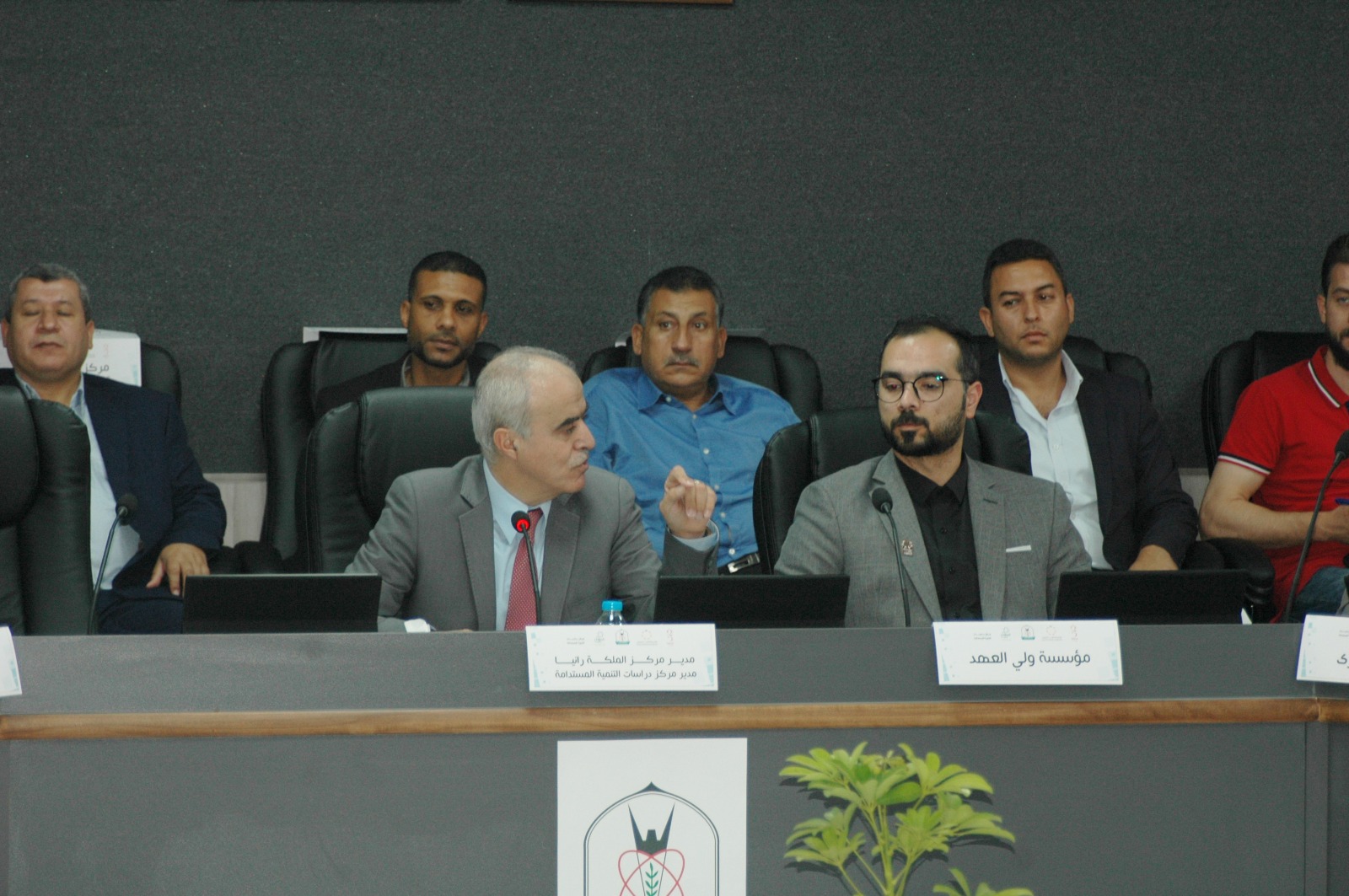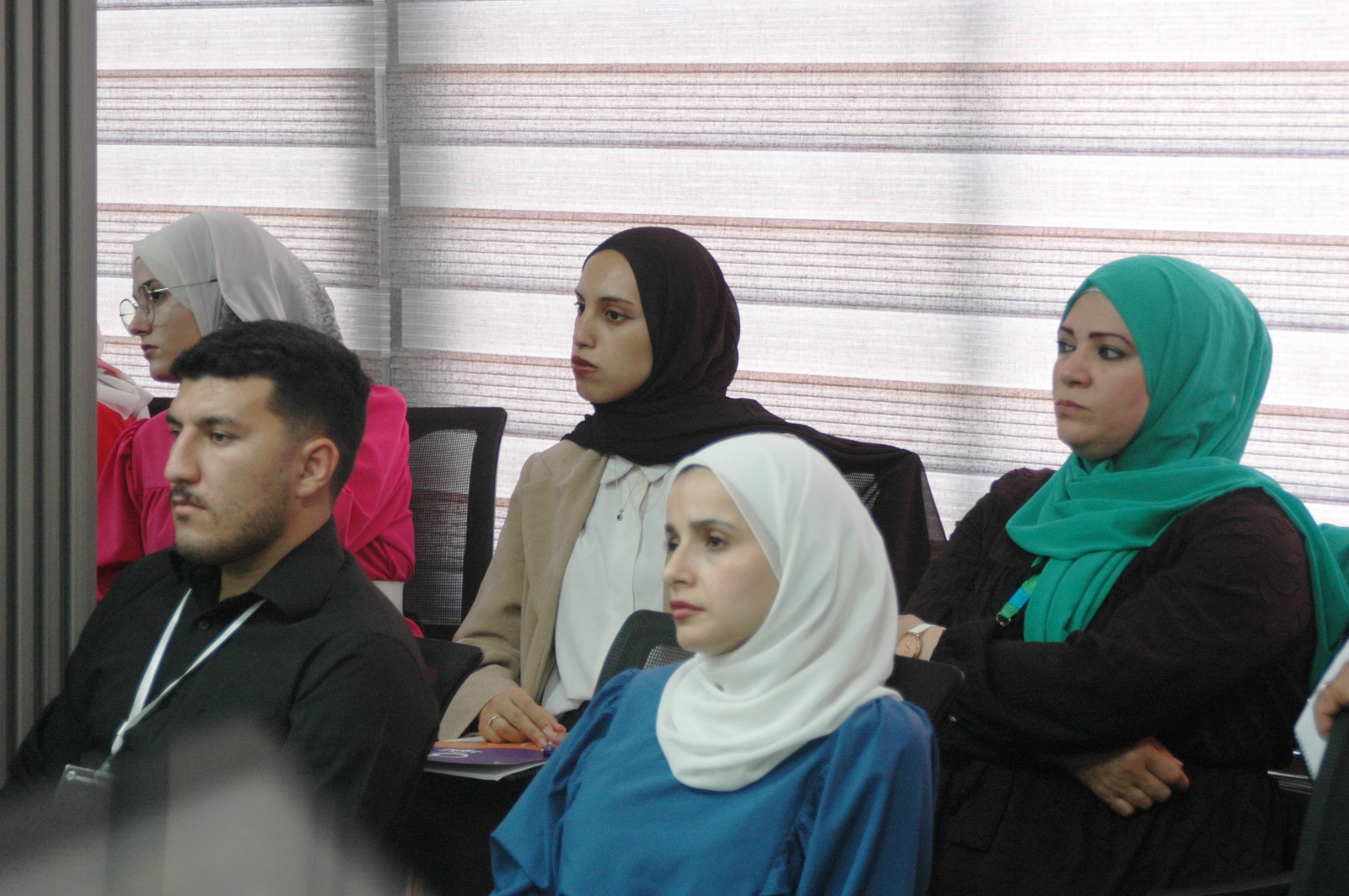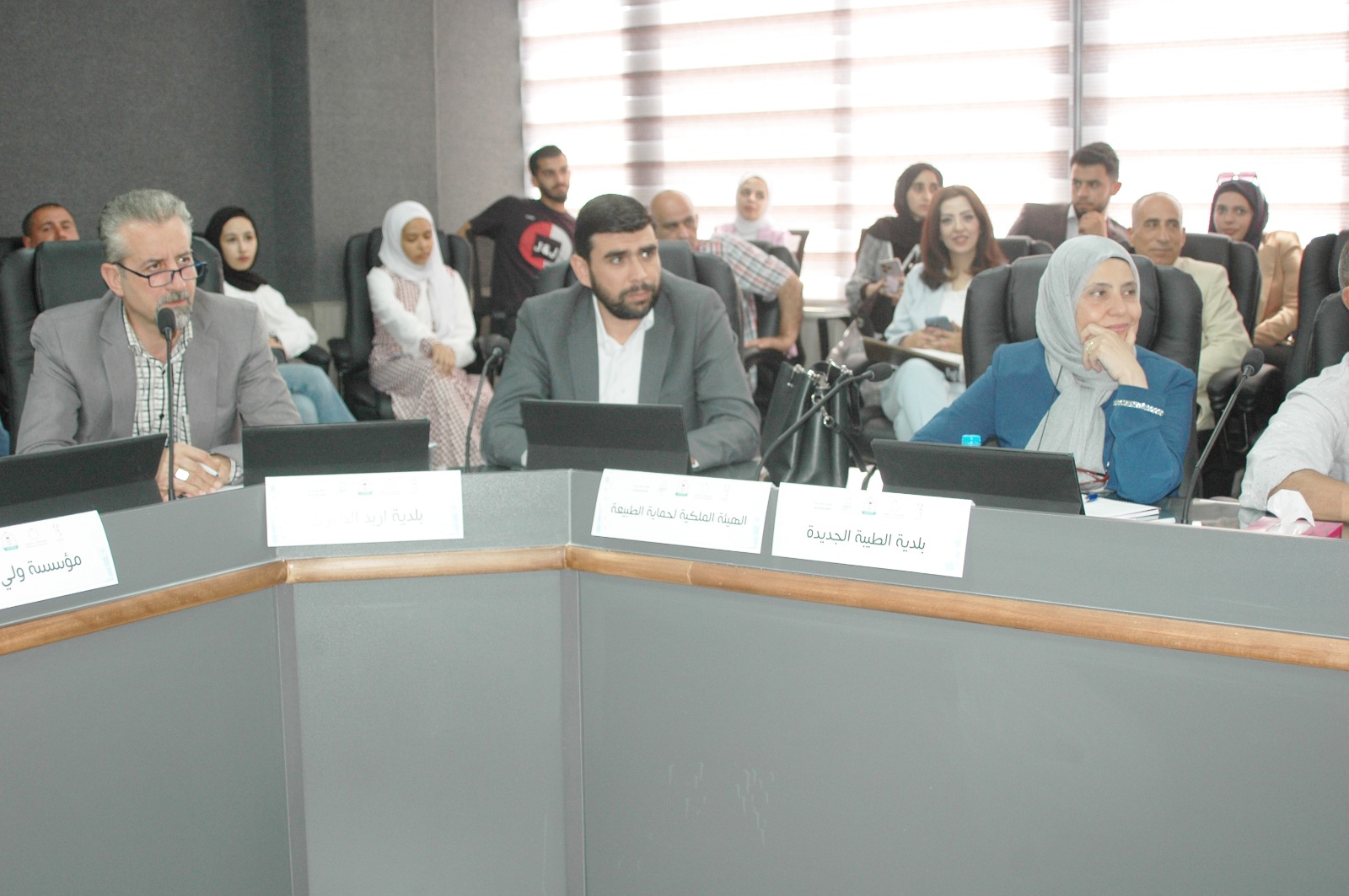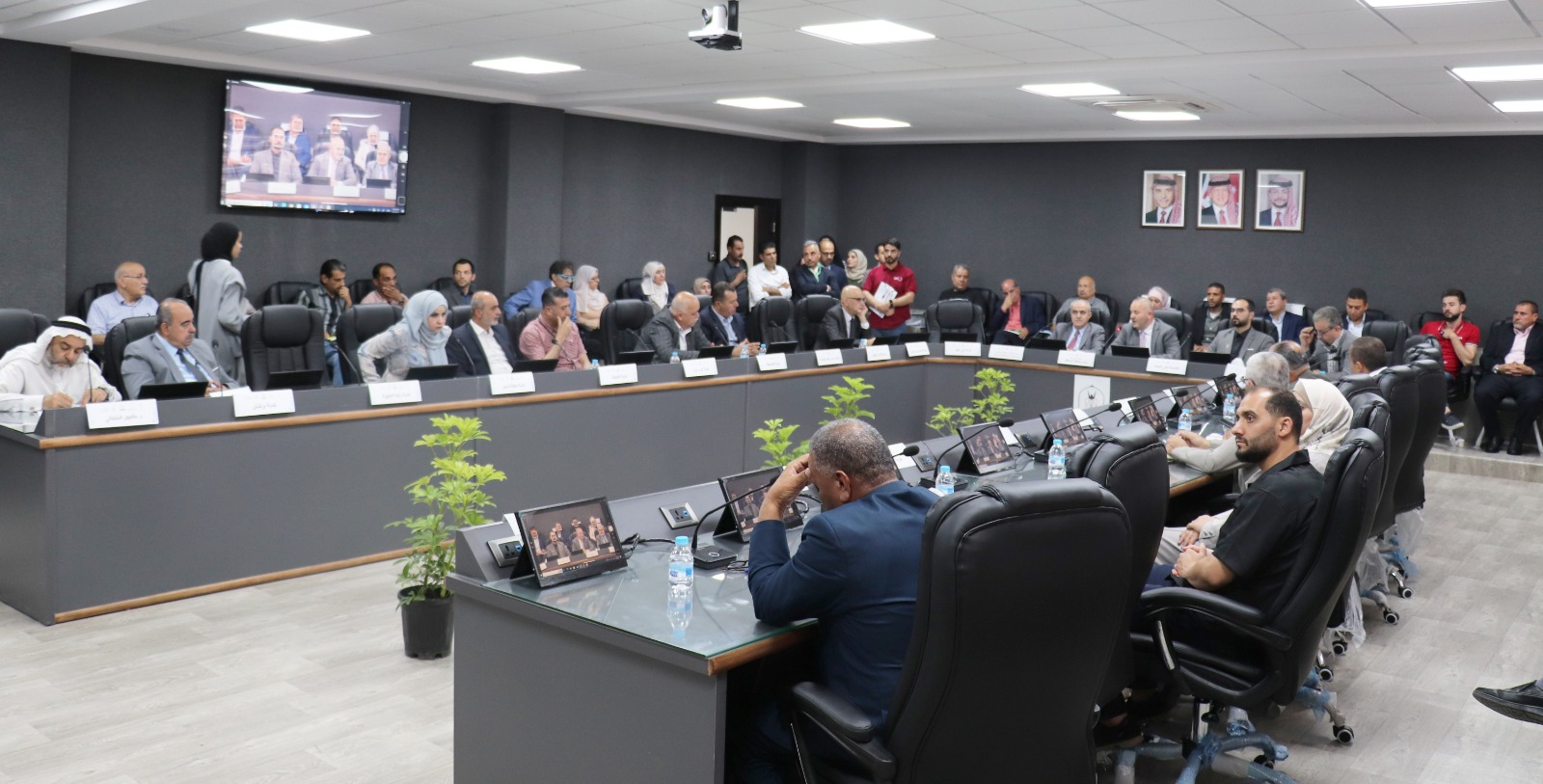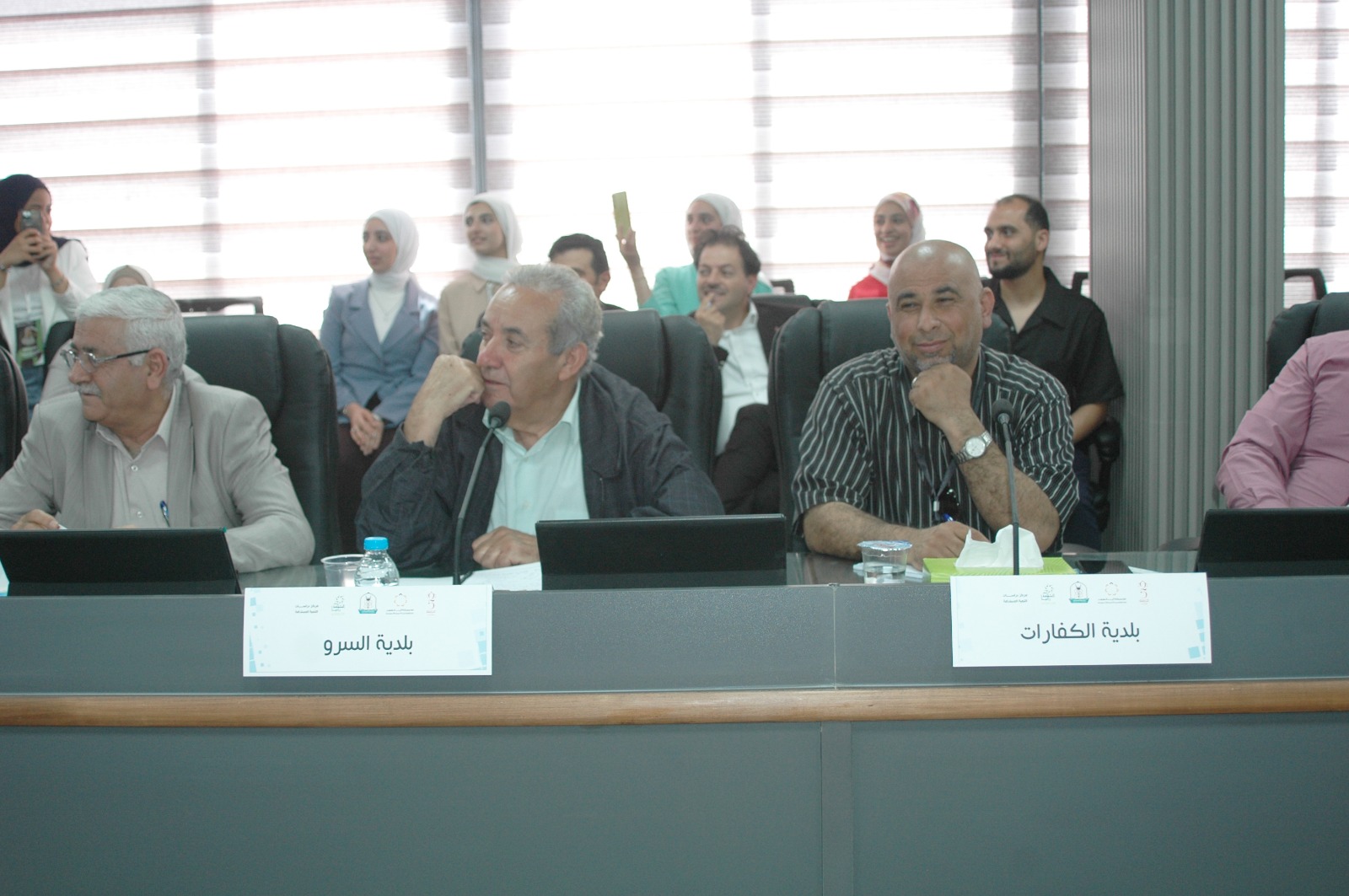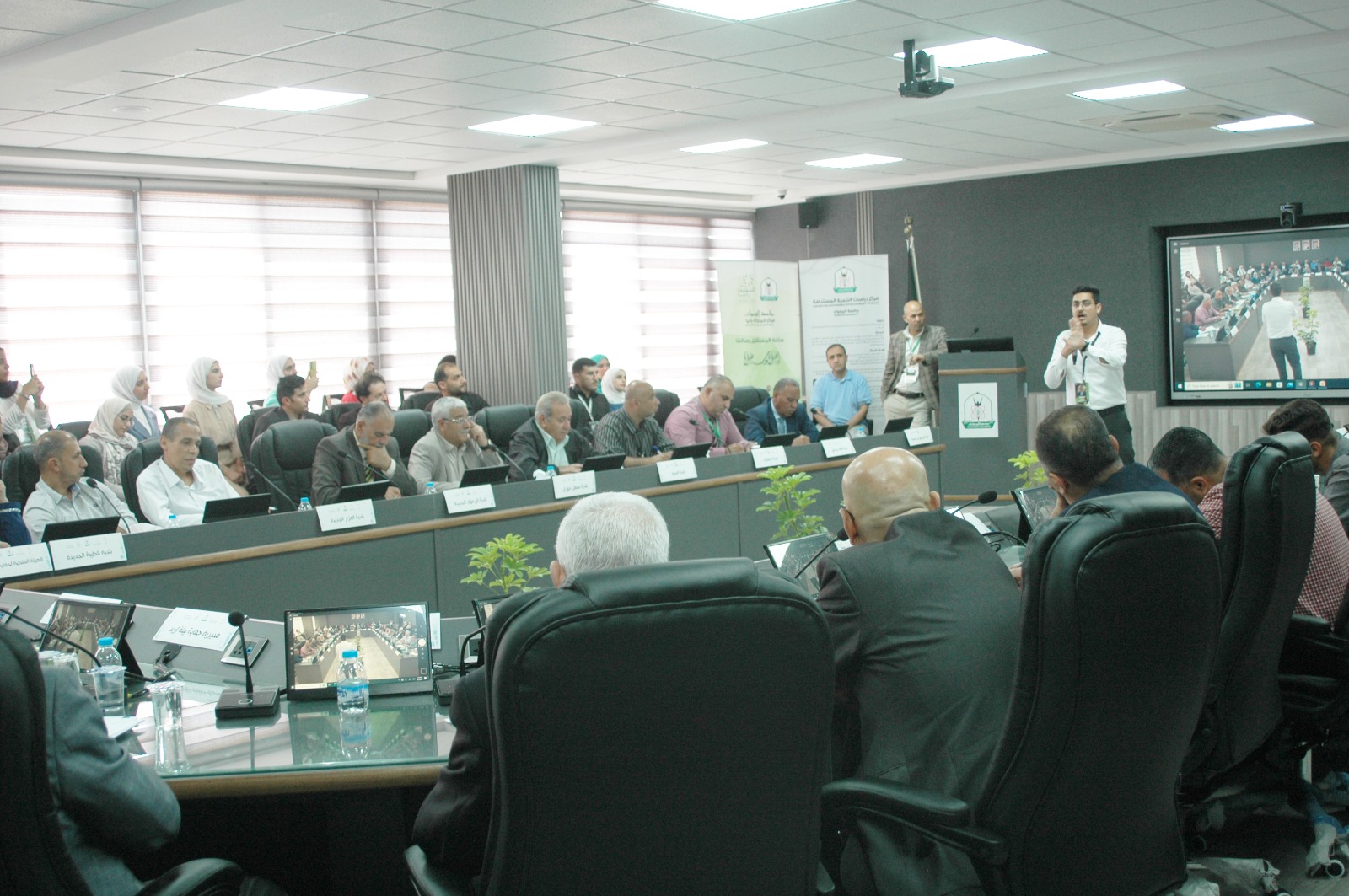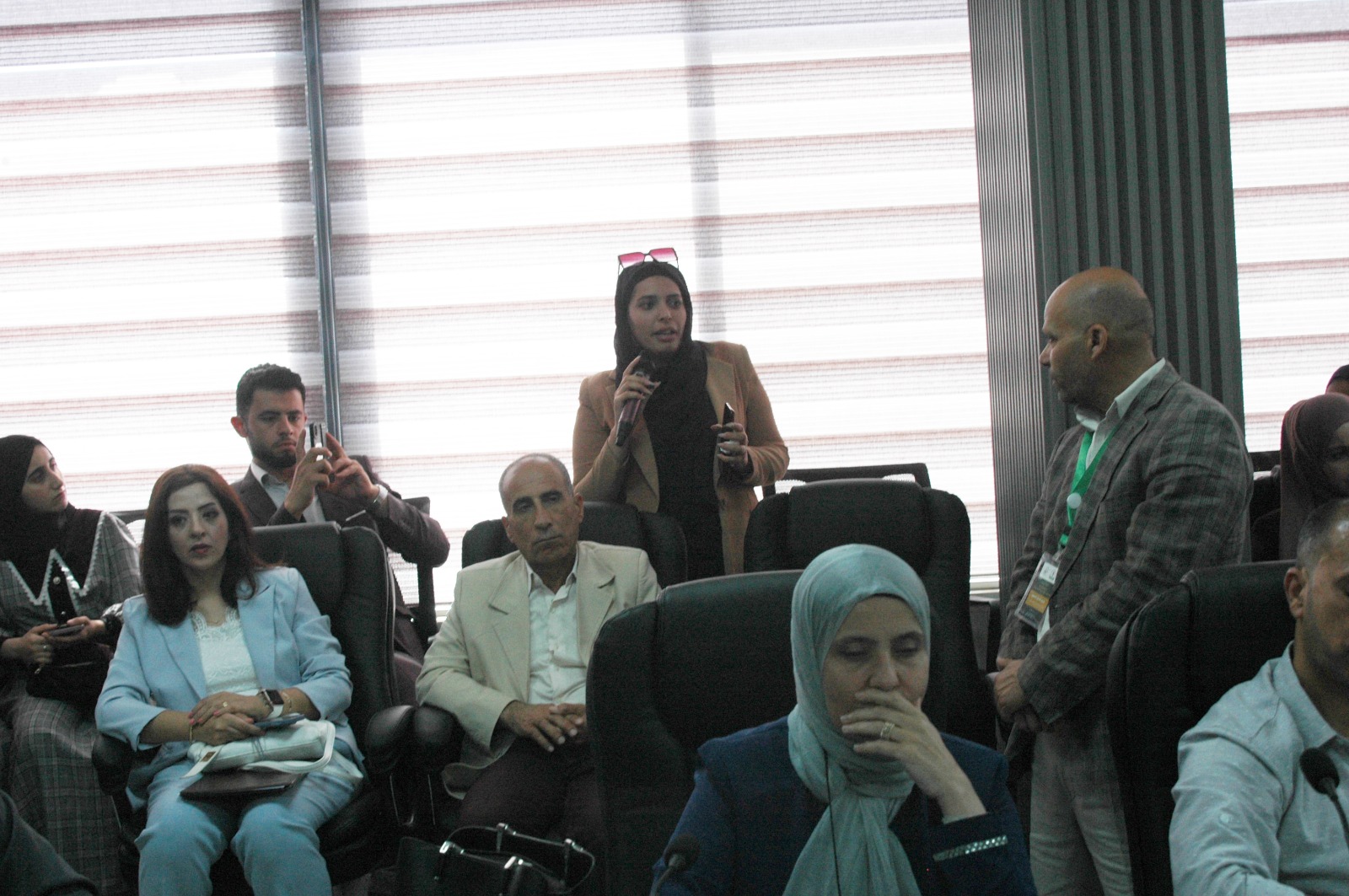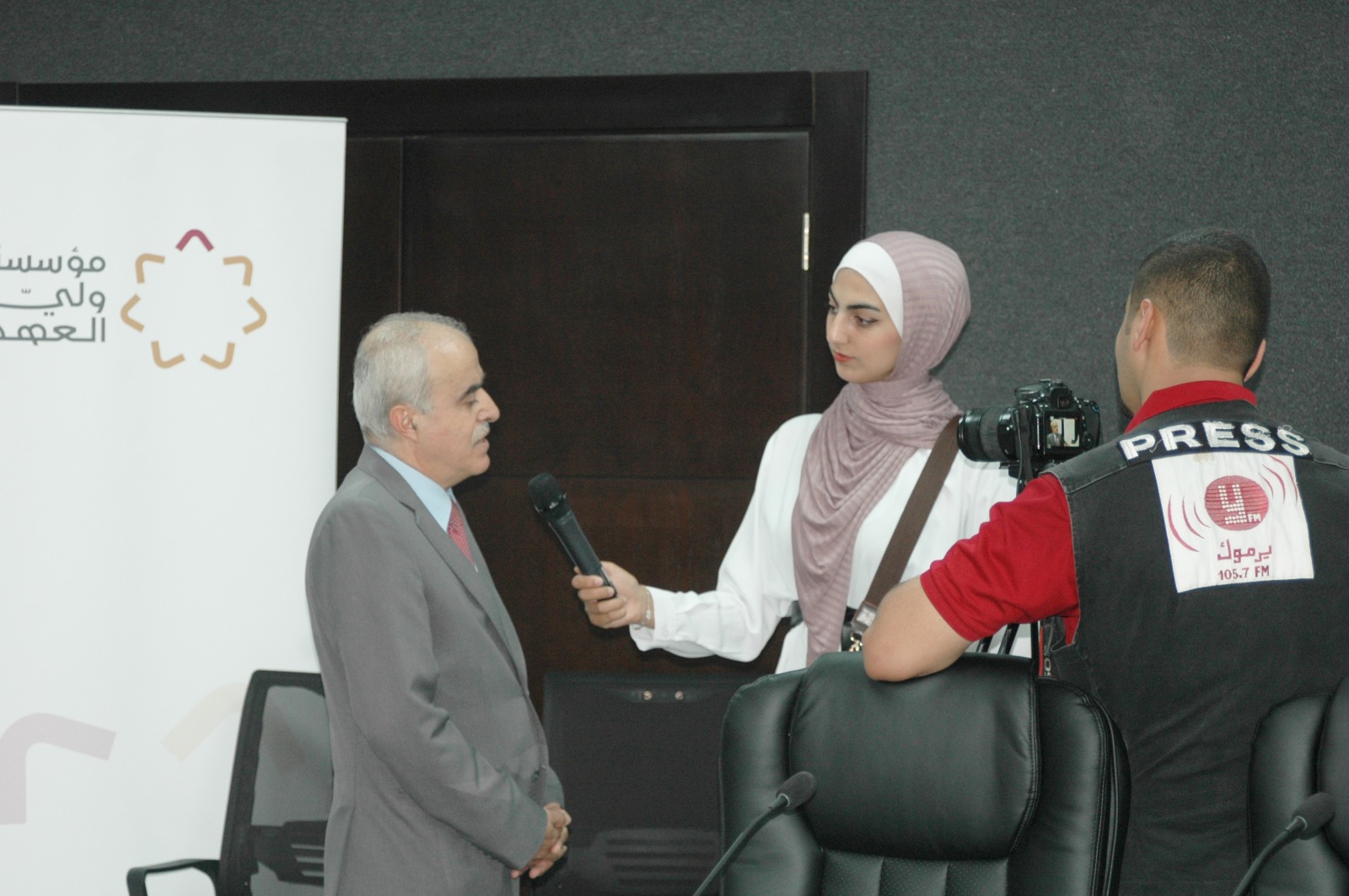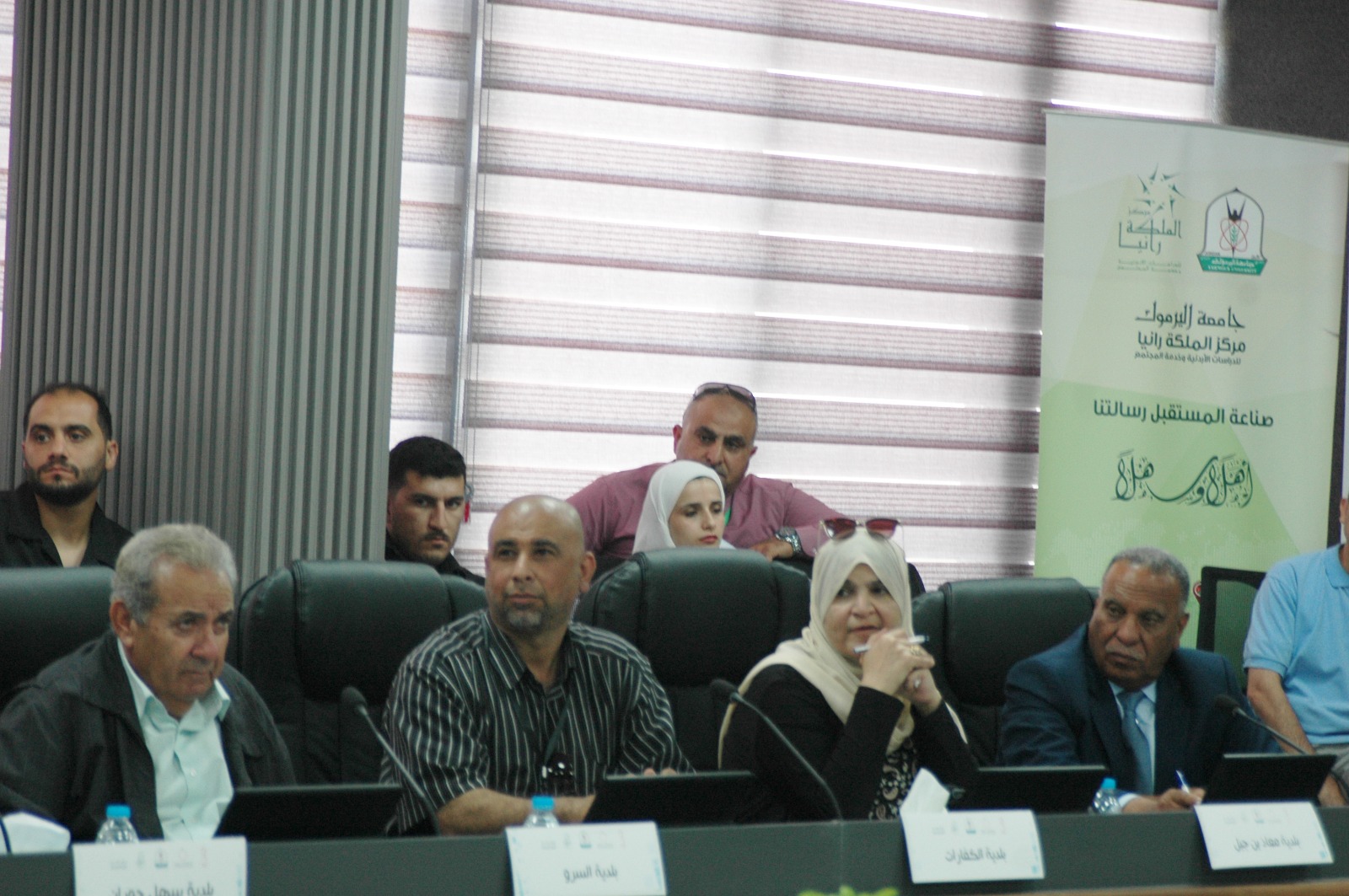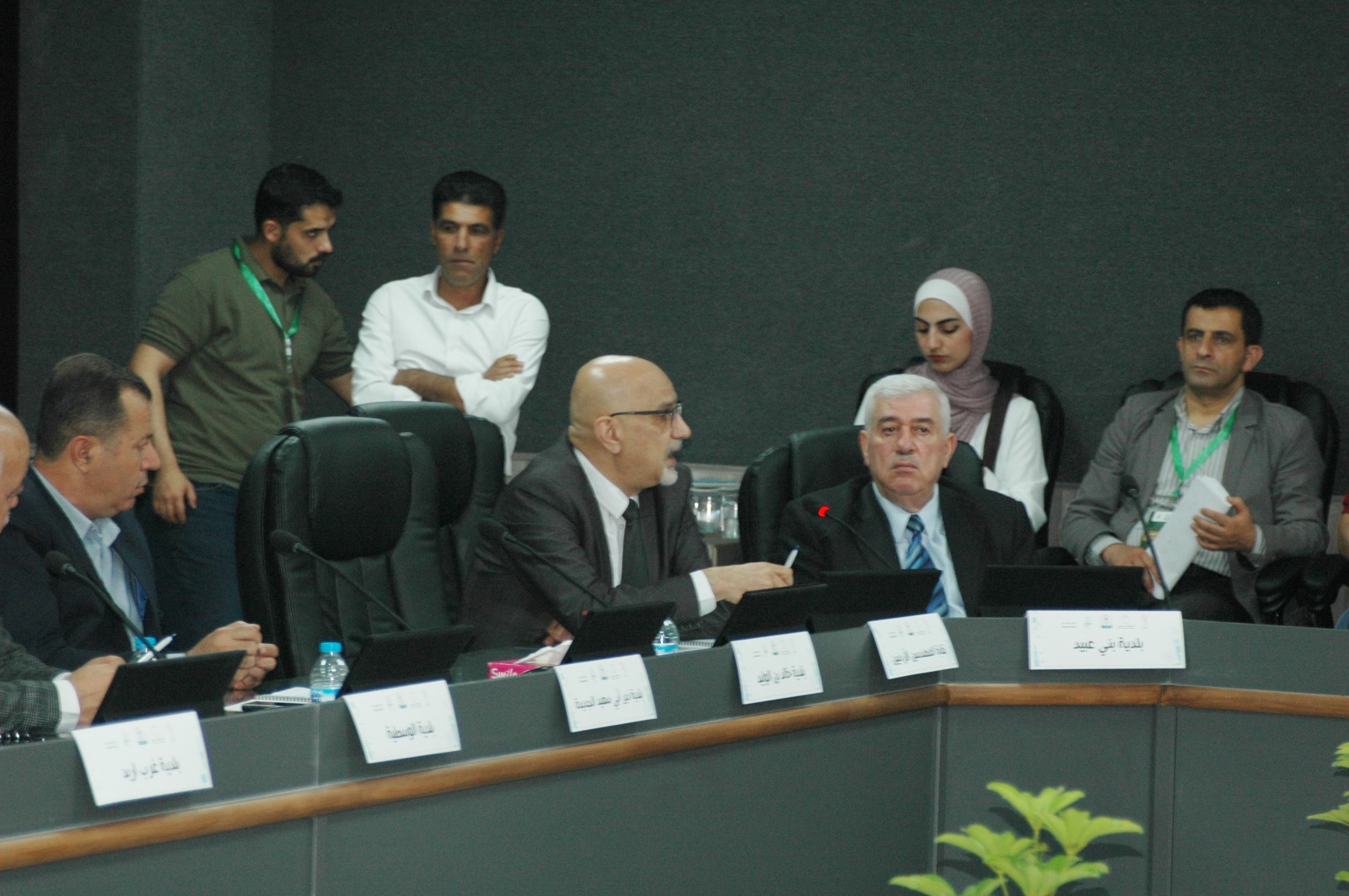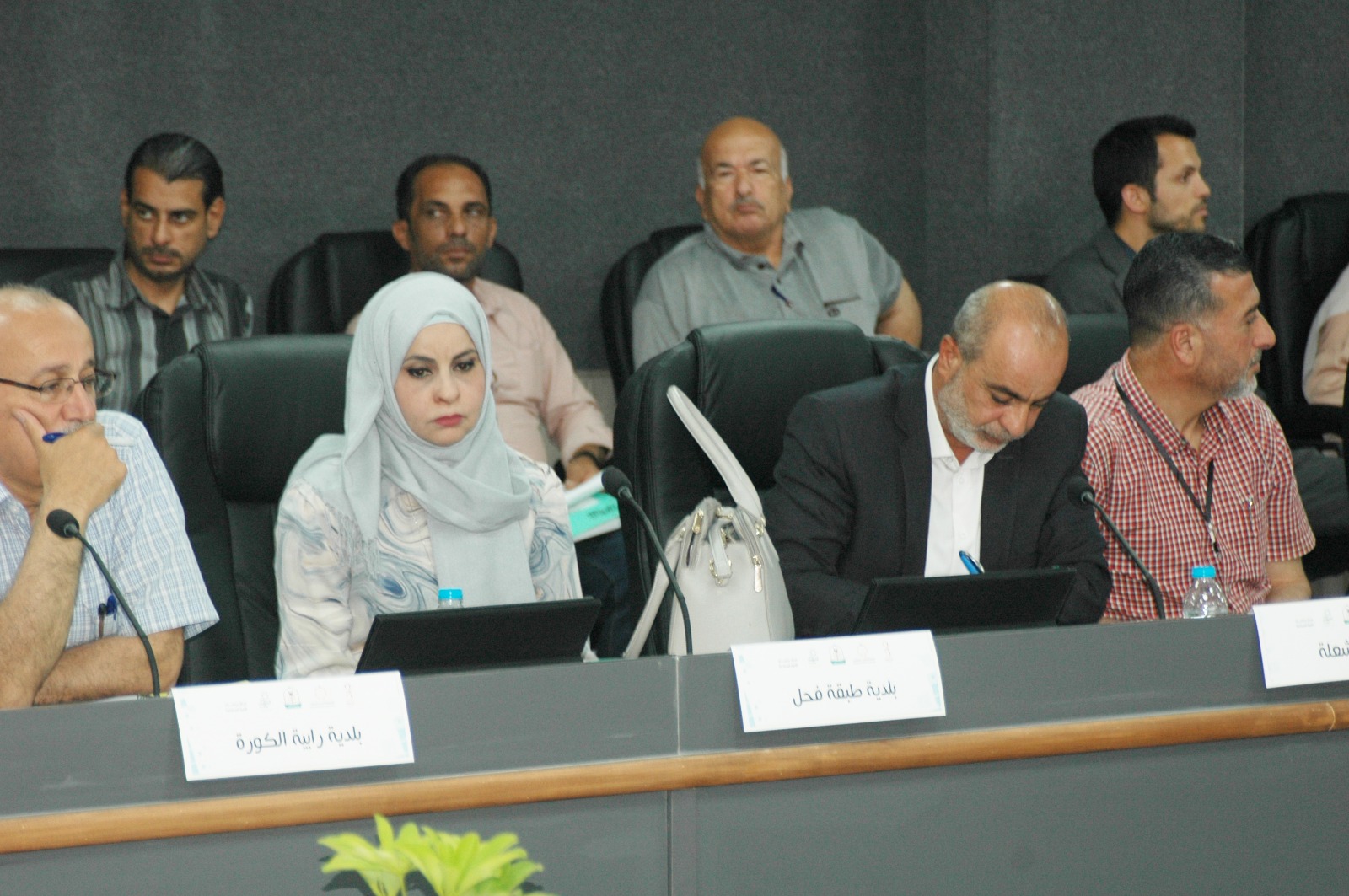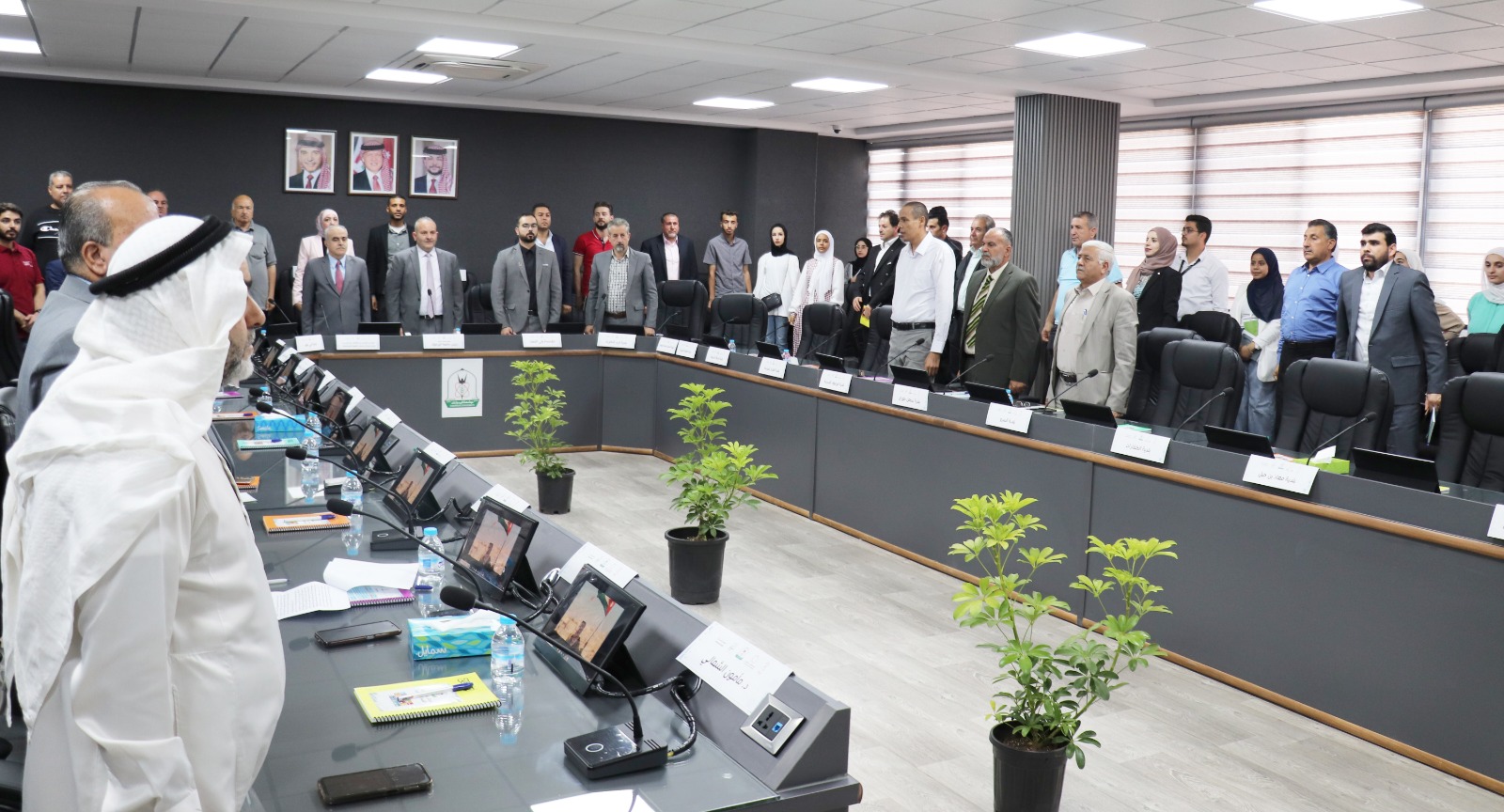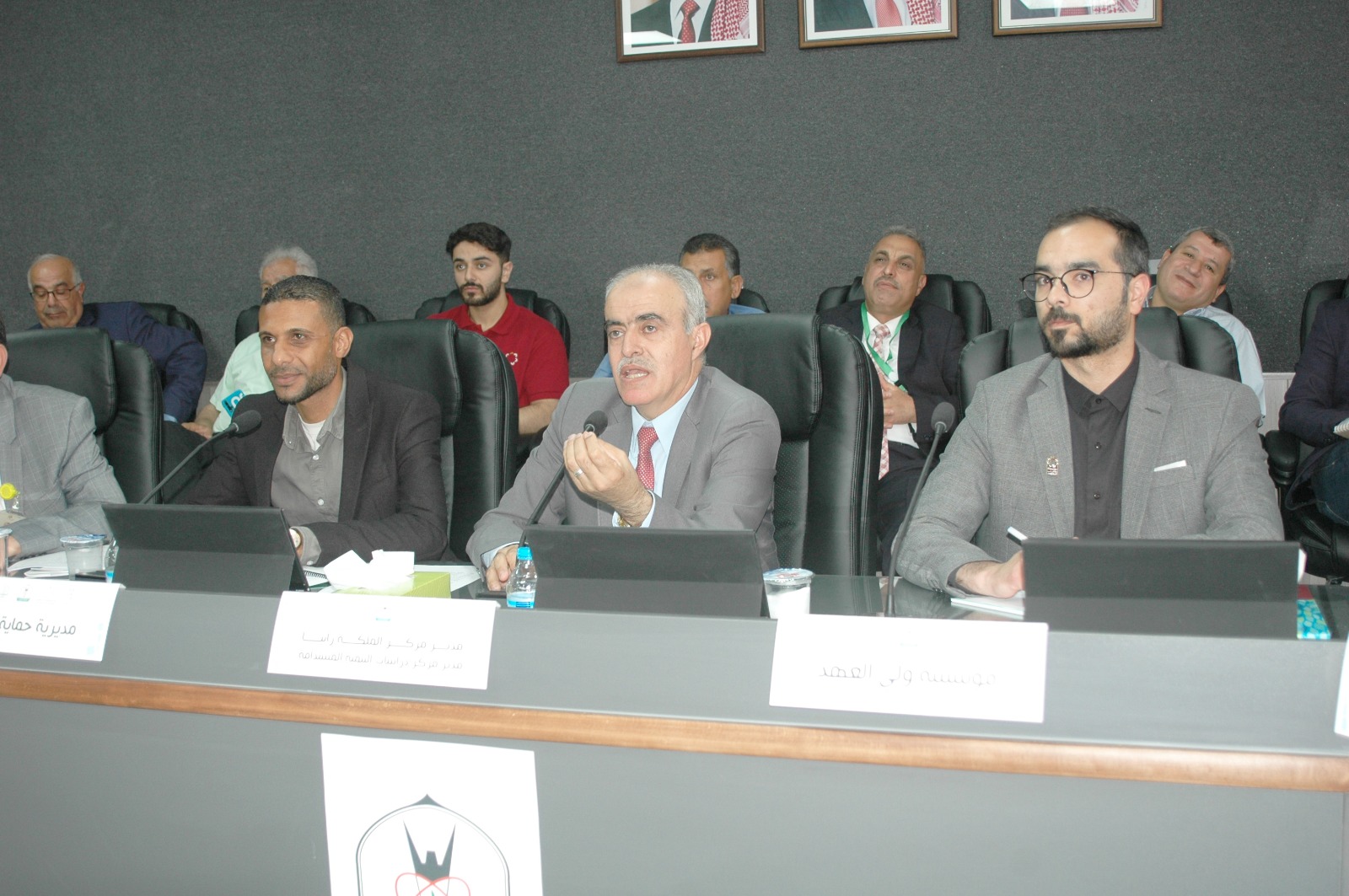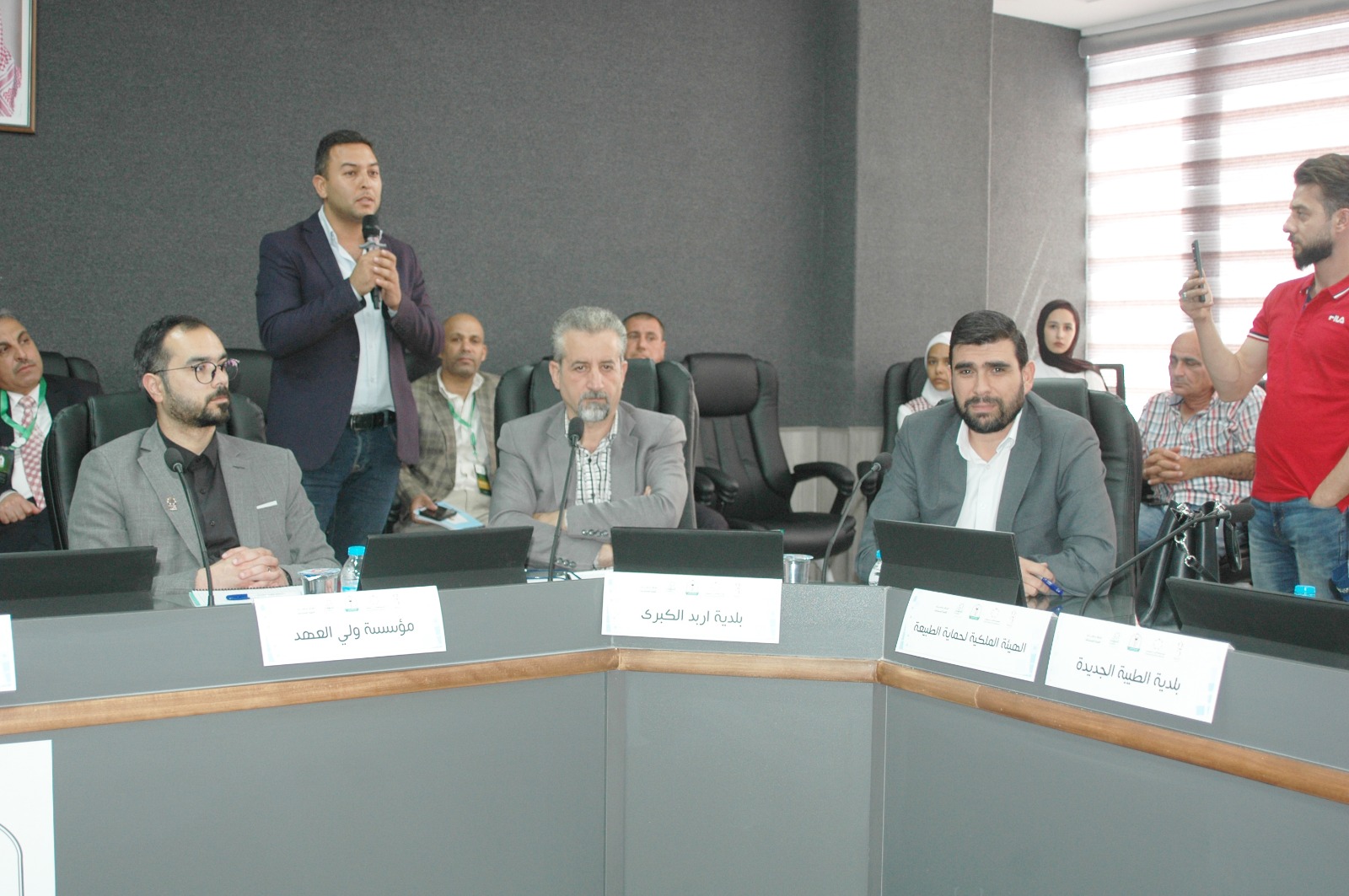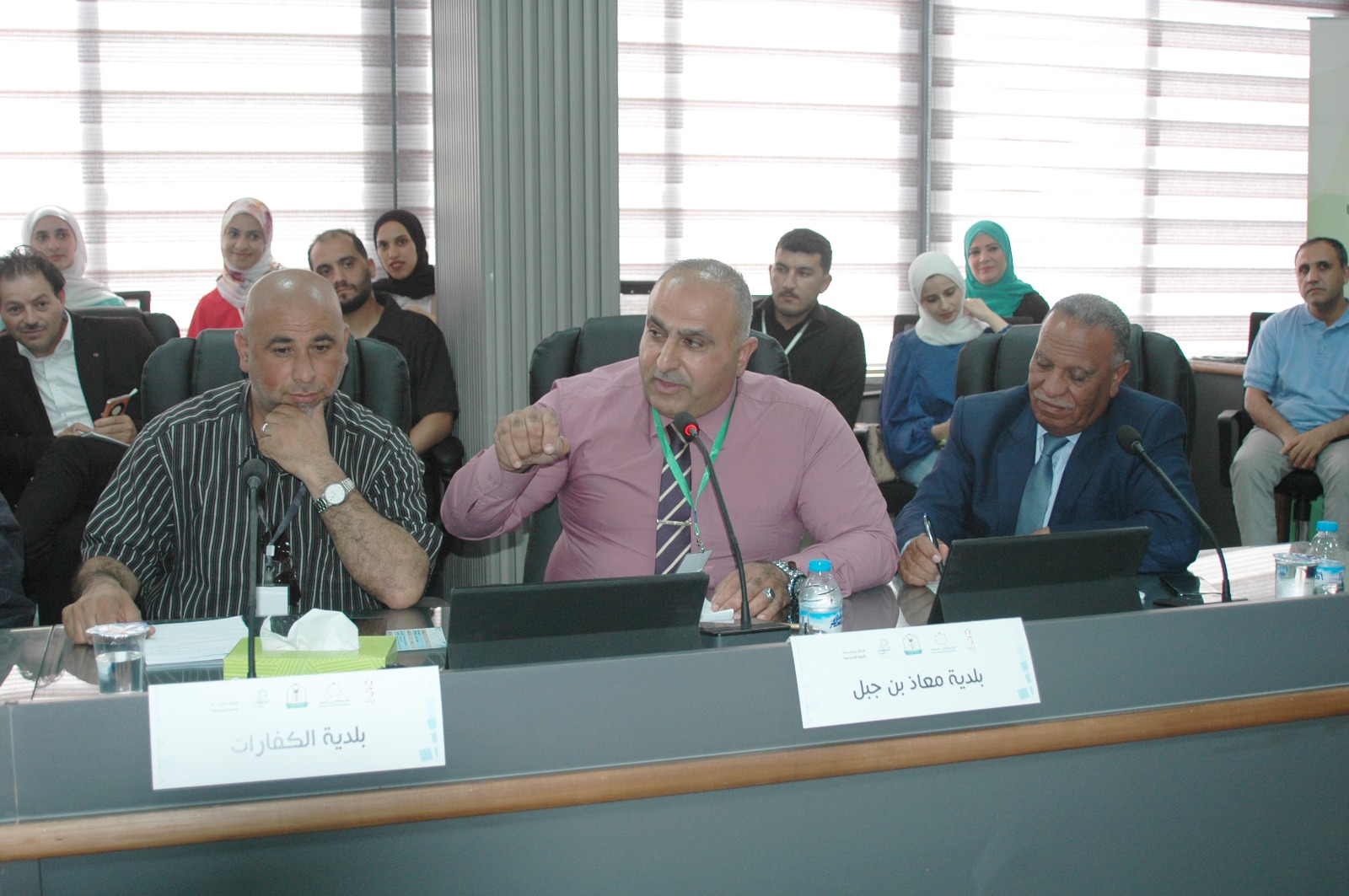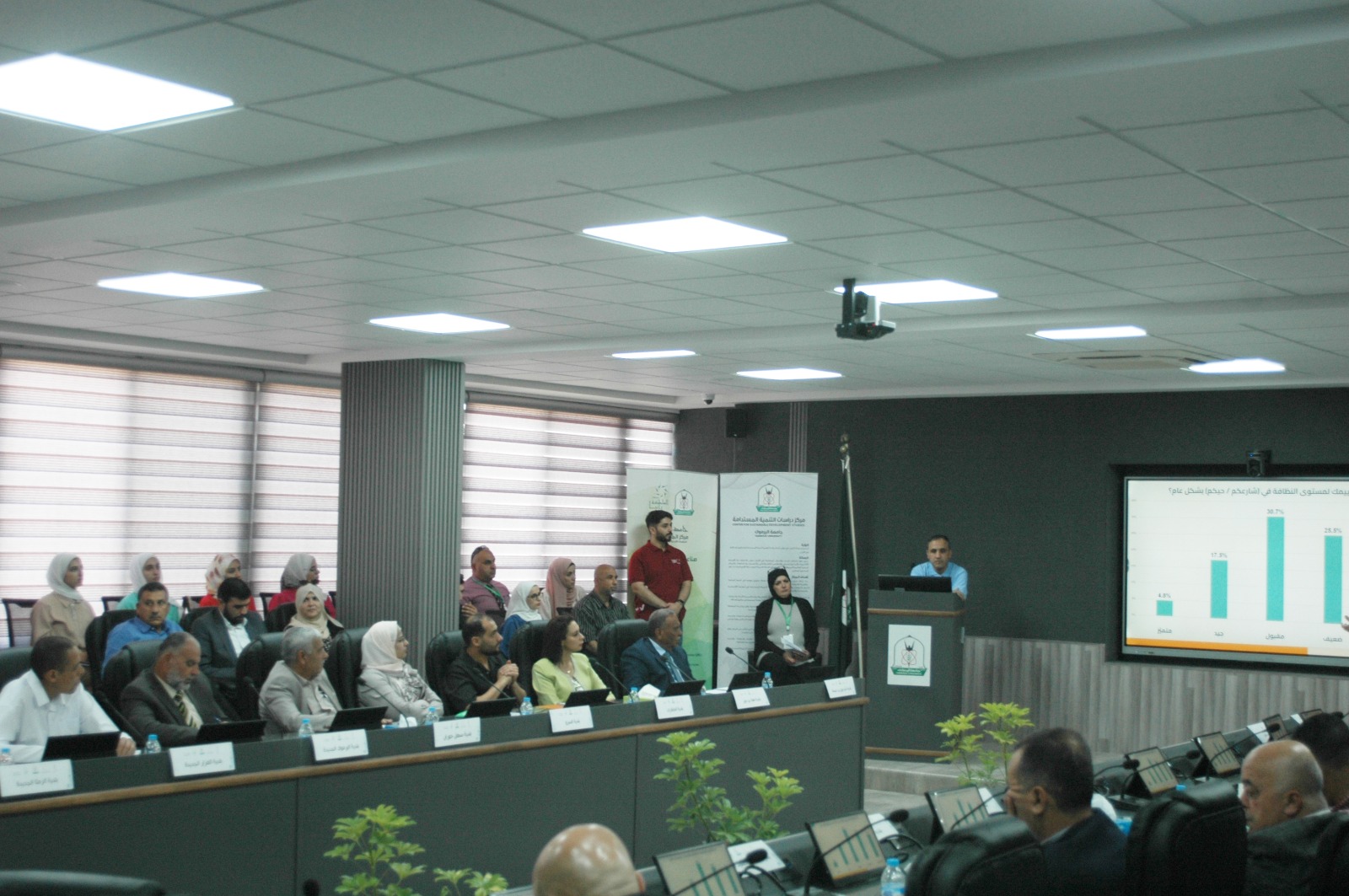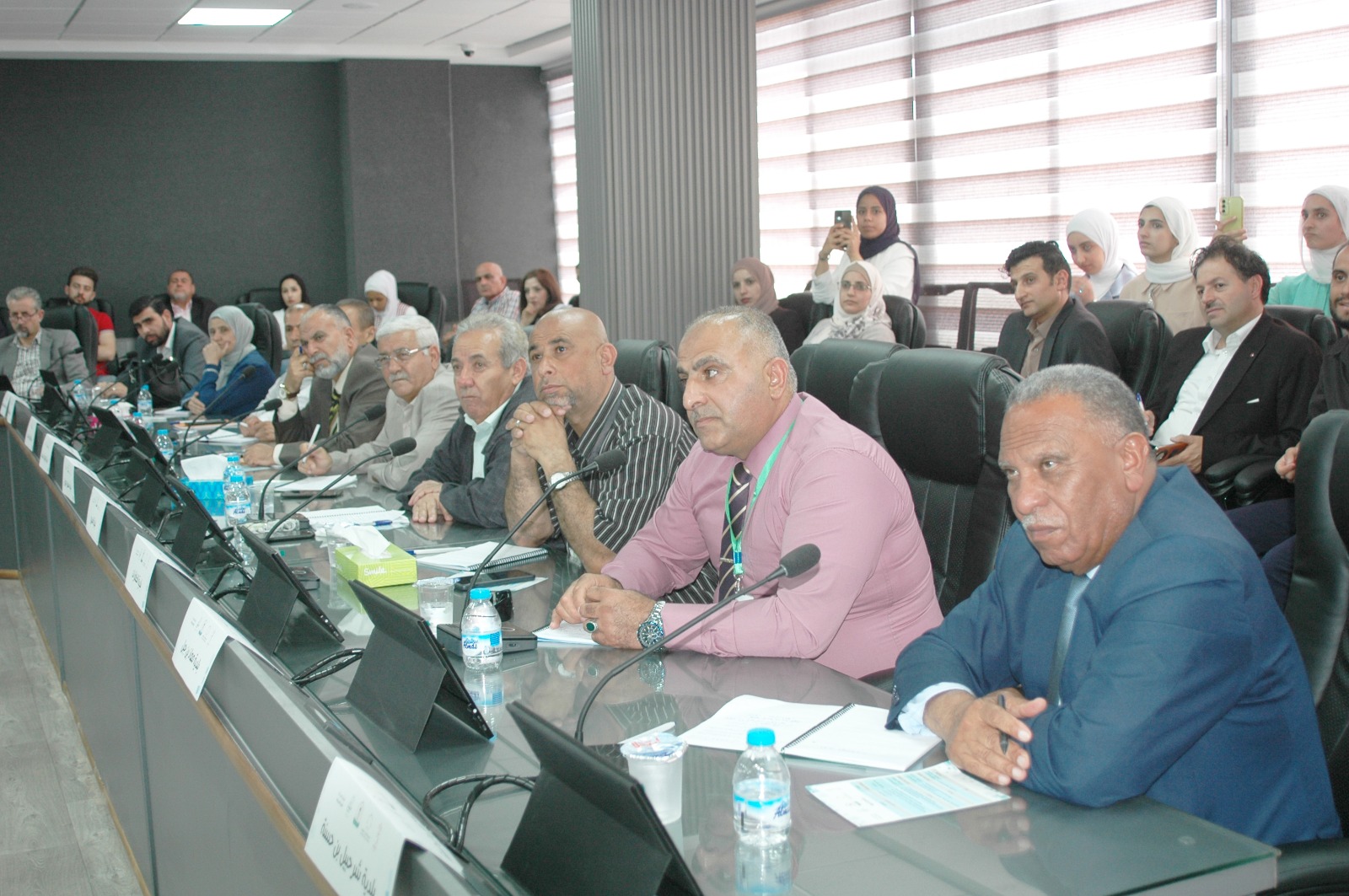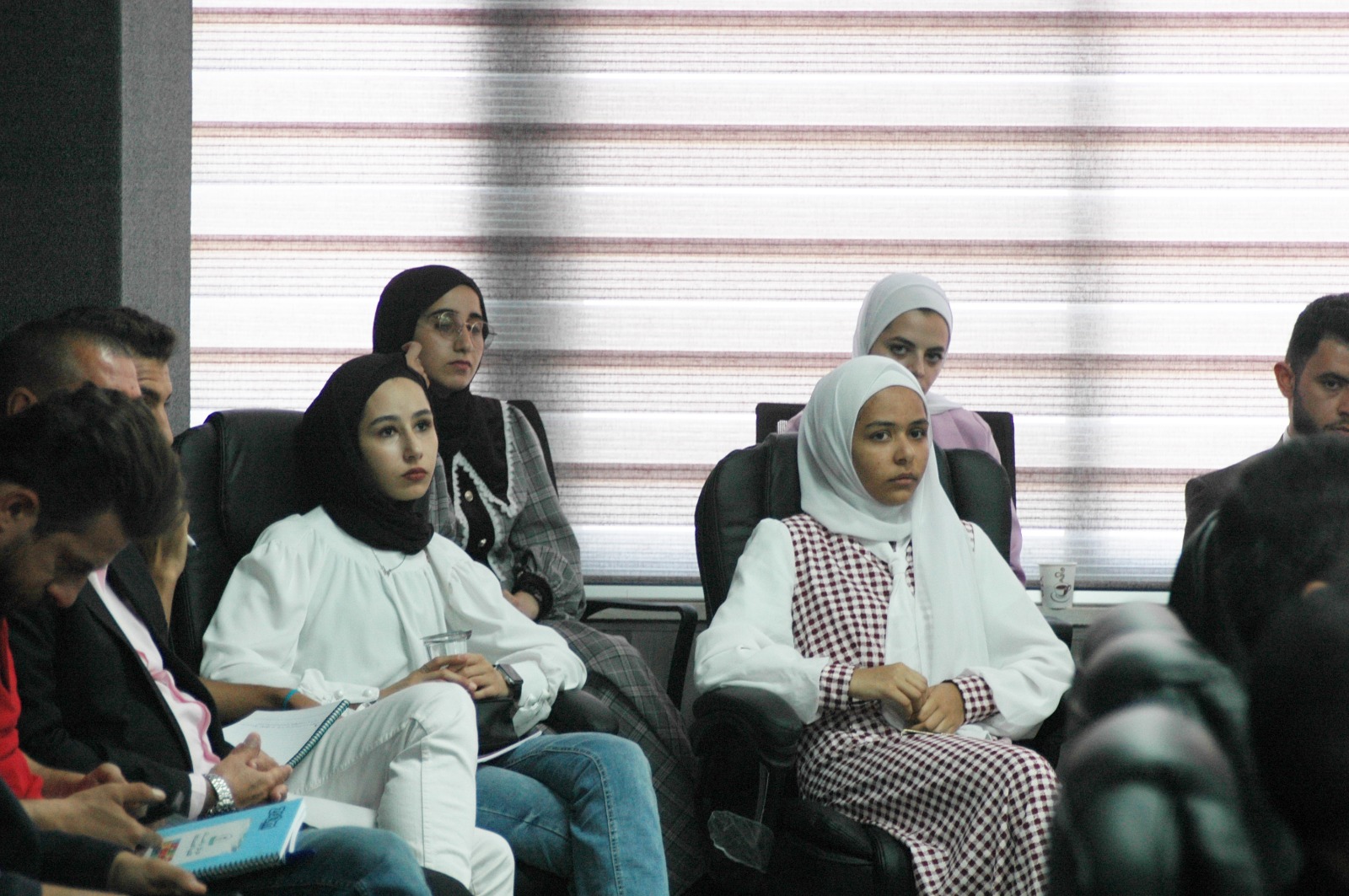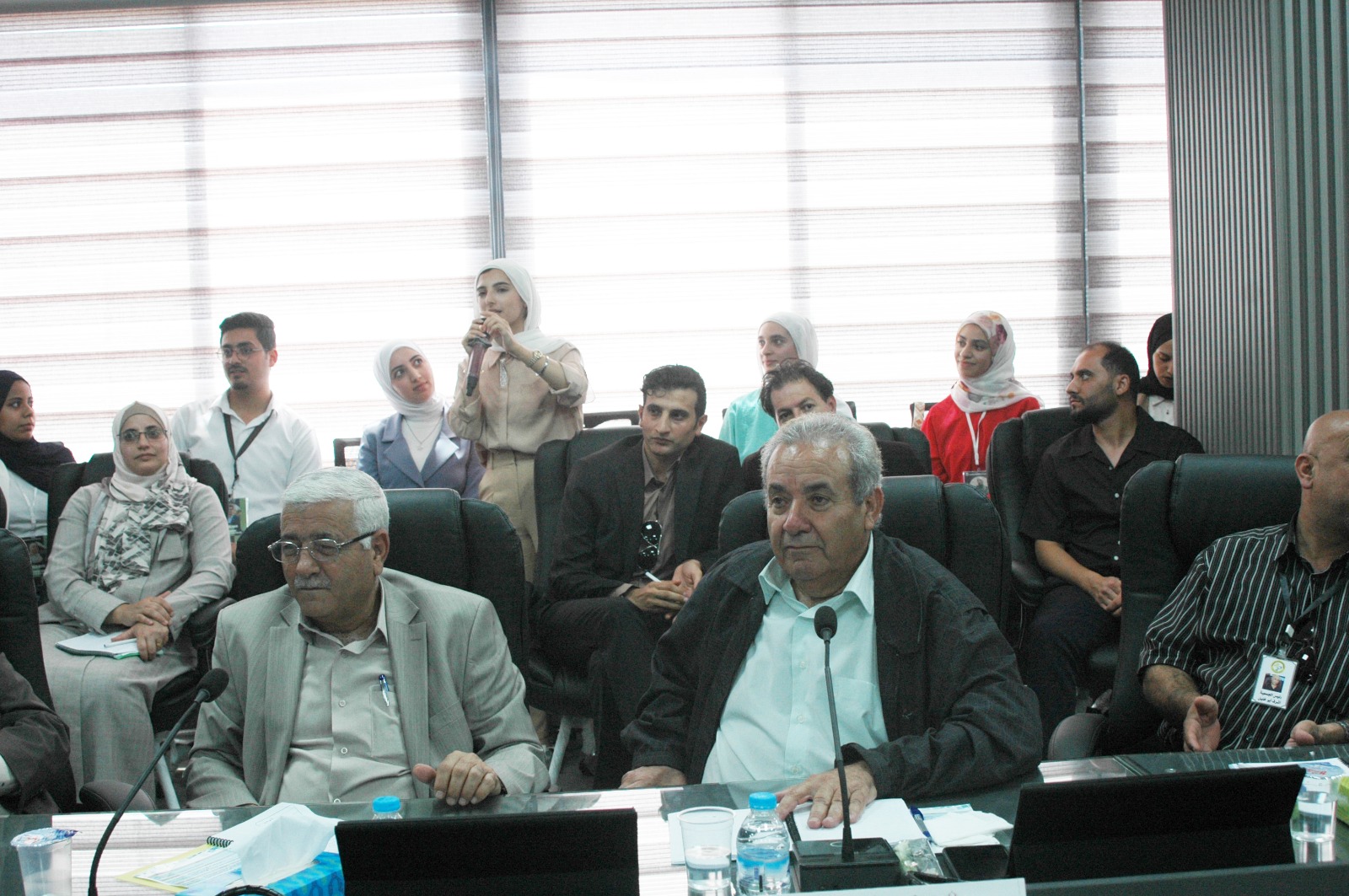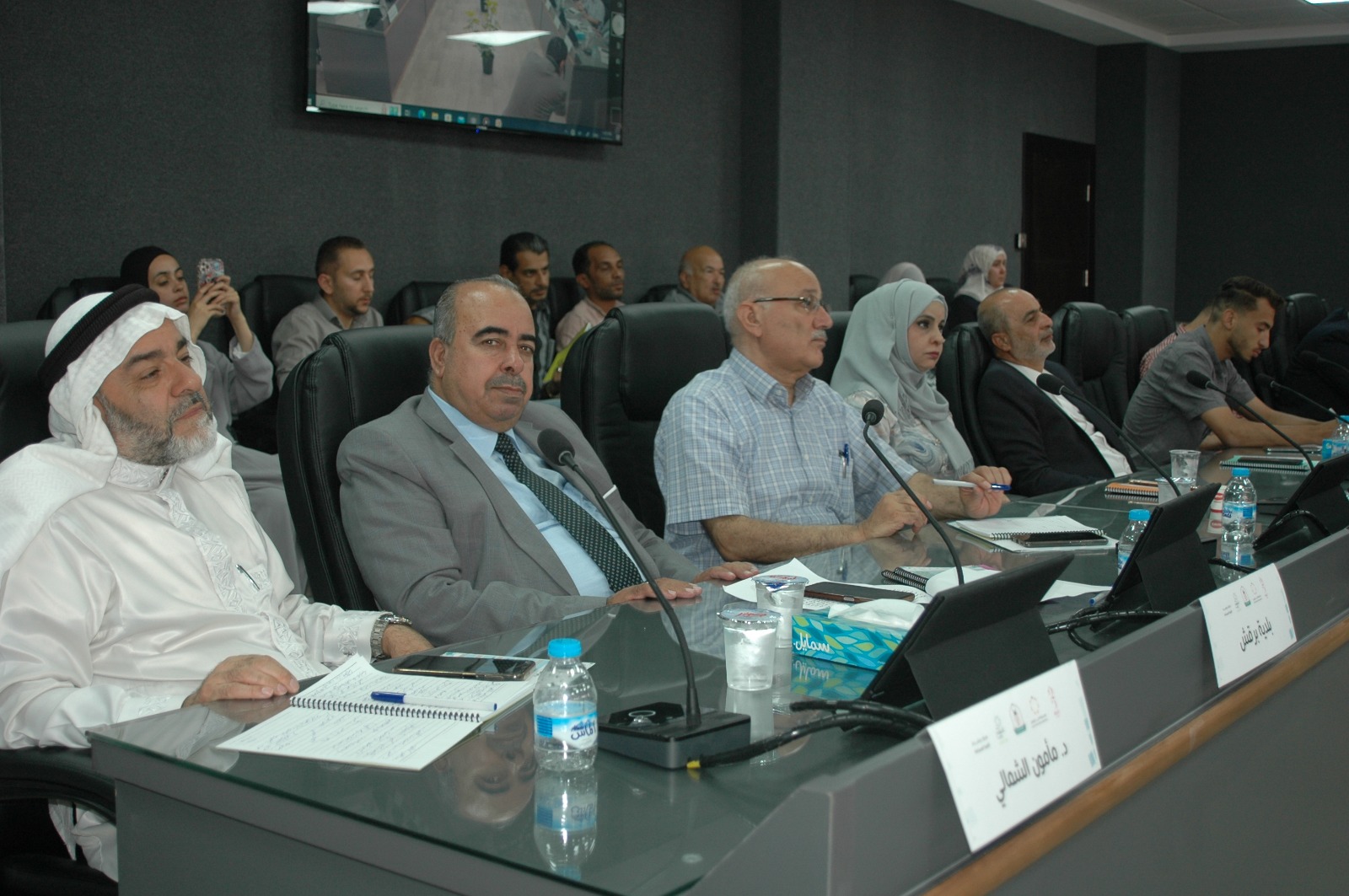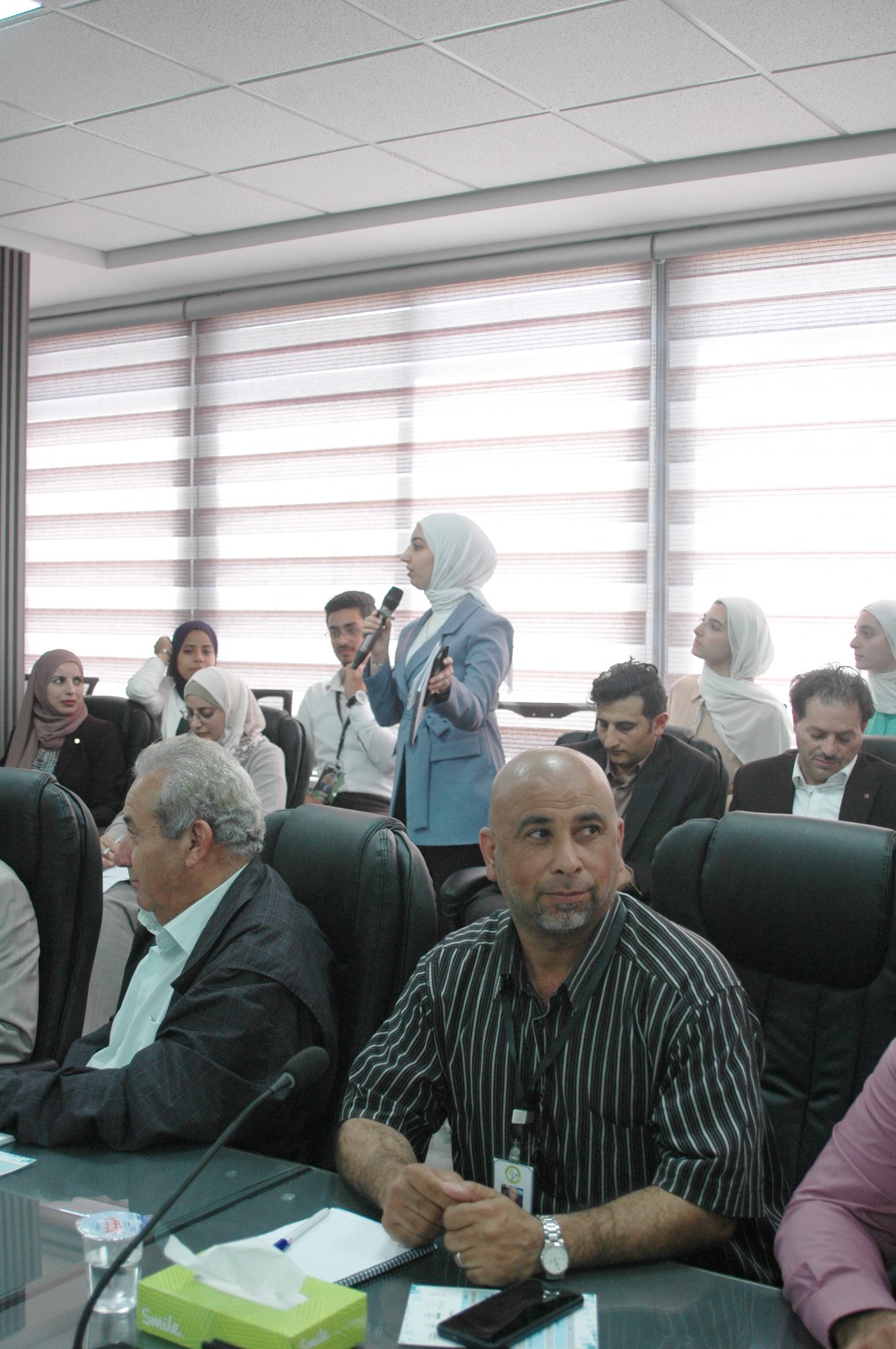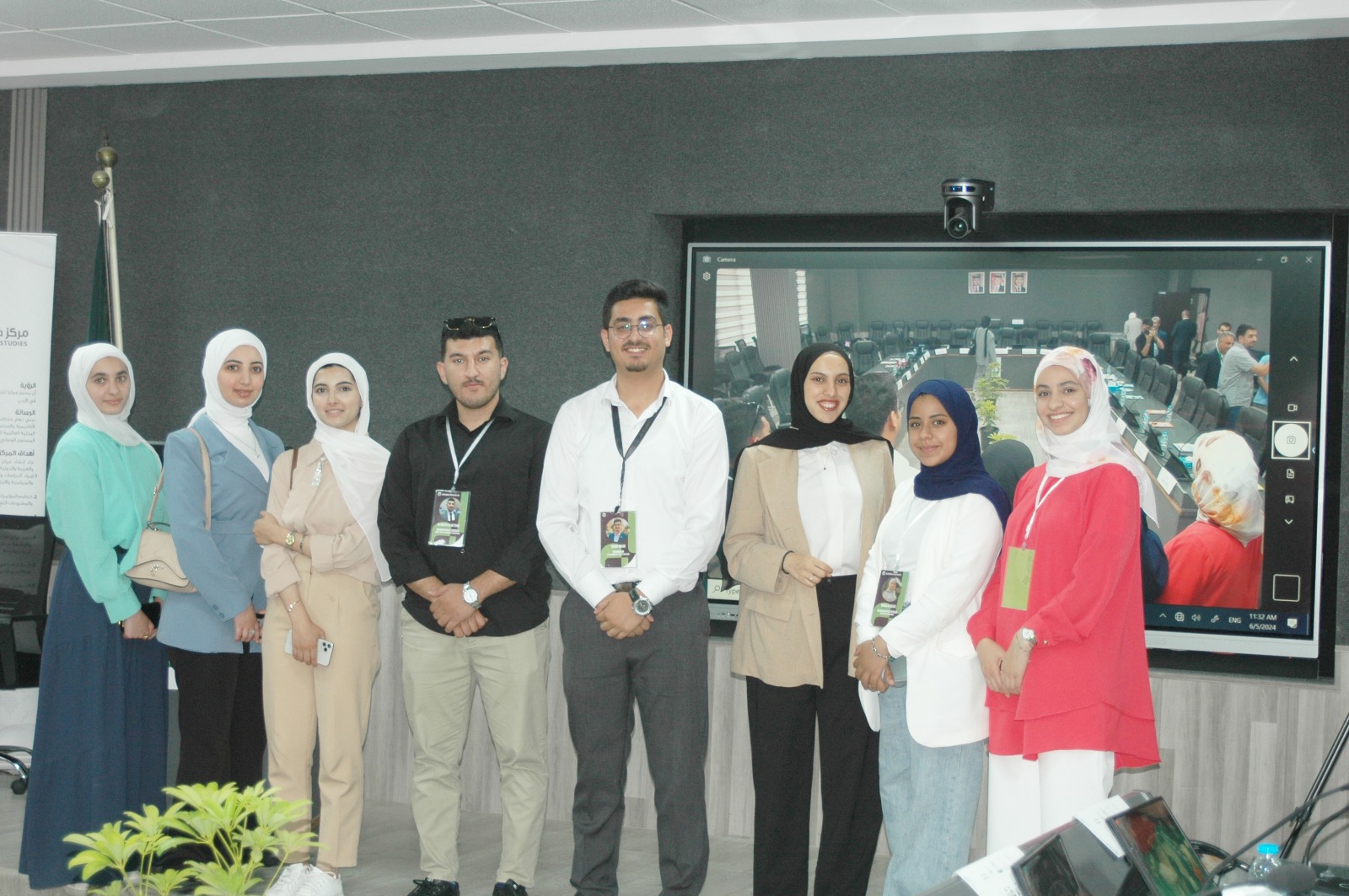"Yarmouk" Holds a Symposium on "The Role of Local Administration in Environmental Protection"... and Announces the Results of the "Irbid Citizens' Satisfaction with Cleaning Services" Survey - Details
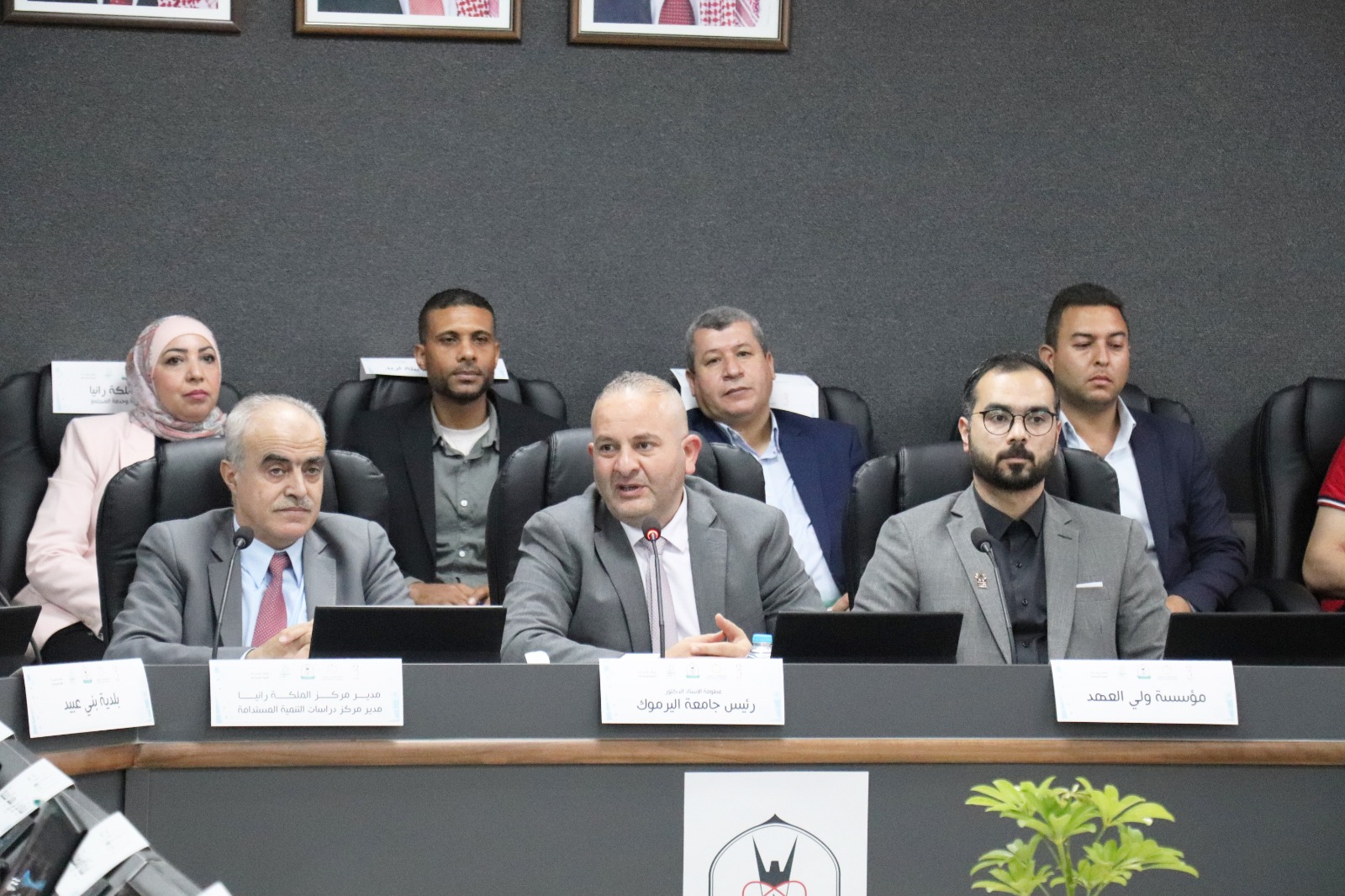
Representing the President of Yarmouk University, the Vice President for Planning and Development, Scientific Research and Quality Affairs, 1 Dr. Samer Samarah, inaugurated the symposium "The Role of Local Administration (Municipalities) in Environmental Protection." The symposium was organized by the Center for Sustainable Development Studies and the Queen Rania Center for Jordanian Studies and Community Service at the university, in cooperation with the Crown Prince Foundation, on the occasion of World Environment Day.
1. www.yu.edu.jo
www.yu.edu.jo
Dr. Samarah pointed out that Yarmouk University has achieved remarkable progress in the 2025 QS World University Rankings, placing it within the top 1000 universities globally. Additionally, it ranks among the top 701 universities worldwide in the "Sustainability" indicator. He stressed the need to continue and activate Yarmouk University's cooperation with civil society organizations and municipalities to enable it to fulfill its mission in serving and developing the community and to achieve sustainability standards, including environmental ones, in global rankings.
He affirmed the university's belief in the importance of the environment and the necessity of preserving and developing it as a resource for the nation and a reason for the sustainability of a decent life for its people. He emphasized that this can only be achieved by collaborating with institutions dedicated to serving Jordanian citizens in all their locations, namely the "municipalities." He appreciated the participation of several mayors, executive directors, and heads of environmental departments from various municipalities in the symposium's activities, which were organized to emphasize the pivotal role of local administration (municipalities) in achieving sustainable local development and providing services to citizens to ensure living in a healthy and safe environment.
Dr. Samarah stressed Yarmouk University's keenness on cooperation and networking with the local community as an integral part of it, placing the capabilities and expertise of its members at its service, especially since the development and prosperity of the local community is one of its most important goals that it strives for and is committed to achieving.
He called on the participants in the symposium to activate a positive and beneficial dialogue to come up with recommendations that can be implemented on the ground, in an effort to enhance the role of municipalities in developing the environmental reality in our cities and villages.
For his part, the Director of the Center for Sustainable Development Studies, Dr. Abdalbaset Othmaneh, delivered a speech in which he indicated that today's symposium aims to diagnose the reality and problems of waste management in Jordan and the national efforts and partnerships towards optimal management of this issue. This is due to the fact that Jordan will not be immune to the consequences of the three planetary crises: climate change, biodiversity loss, and the continued threat to our planet from pollution and waste.
Dr. Othmaneh emphasized the importance of the role of municipalities in managing the waste file to achieve environmental sustainability goals and improve the quality of life in local communities. This can be achieved through a set of policies and procedures such as developing waste management policies and programs, encouraging awareness and education for citizens, providing waste management infrastructure, activating partnerships and cooperation through networking with various relevant entities, and using technology and innovation to improve waste management processes and maximize the utilization of available resources.
Dr. Othmaneh reviewed the most significant challenges facing municipalities, including: weak funding, lack of human resources, poor urban planning, undisciplined behaviors, inadequacy of waste disposal technologies, and legislation and policies that may contain complexities in legal procedures and regulations. He stressed the need for concerted efforts between local administration, civil society, and the private sector, and investment in education and awareness to emphasize the importance of preserving the environment and public cleanliness.
During the symposium, Dr. Othmaneh presented the results of the survey conducted by the center on "The Satisfaction of Citizens Residing in the Areas Under the Greater Irbid Municipality with the Cleaning and Environmental Services Provided by the Municipality." The survey included (2257) individuals during the past month of May.
He explained that this survey included many questions and inquiries in two main axes: the first related to the municipality's efforts in managing the waste file, and the second focused on the awareness of residents in the municipality's areas and their behavior in dealing with this highly important issue.
The survey results showed that approximately 74% of respondents stated that the municipality had provided containers close to their residences, at a distance of no more than 100 meters. However, 40.0% of them indicated that the municipality uses modern equipment and technology for waste collection. Additionally, about 64% of the sample confirmed that the municipality empties garbage containers at least once a day, while the majority of the sample (61.7%) indicated that the municipality does not clean and maintain the containers. 27.4% of the sample stated that the number of containers in their neighborhood is proportionate to the number of its residents.
Regarding the adequacy of the number of waste collection workers to provide the service effectively, 60.5% of the sample believed that the number is insufficient, and 55.2% stated that the containers are not adequately distributed in their residential areas. In contrast, 26.9% of the sample expressed their satisfaction with the availability of rainwater drainage outlets in their residential neighborhoods.
On the issue of residents' commitment to taking out waste and placing it in designated places, 38.4% of the sample confirmed the lack of commitment of residents in this regard, emphasizing (about 90% of the sample) that they support the imposition of new penalties on violators and the activation of existing ones. 63% of respondents noted that containers in their residential areas are subject to theft, vandalism, or arson, while 34.1% of the sample indicated that the level of awareness and commitment of neighborhood residents in dealing with the waste file was weak or unacceptable. 31.8% reported that they had previously submitted a complaint to the municipality regarding its waste management, and the subject of the complaint for 47.5% of the complainants was "irregularity in waste collection," with 30.6% of the sample confirming that the municipality followed up on their requests.
Regarding the evaluation of the overall performance level of cleaning workers in their neighborhood, 59% of the sample stated that their performance was at least acceptable, just as 53% indicated that the level of cleanliness in their street and neighborhood was more than acceptable. Respondents attributed the shortcomings in cleaning services to both the municipality and the negative behaviors of some neighborhood residents.
Regarding the most negative aspects related to the level of cleanliness and the environment in their neighborhoods, waste of all kinds came first, followed by construction debris and rubble, and then dust in the streets.
Regarding the priorities suggested by the respondents to improve cleaning services in the city, they were, in order of importance: tightening control over the municipality's personnel responsible for the cleaning file, then educating citizens about their role in the city's cleanliness, and then tightening control over excavation and construction contractors.
The symposium's activities included two sessions: the first was a dialogue session in which the mayors of Irbid Governorate presented their municipalities' efforts in managing the waste file, and the second was a discussion session between the attendees, especially students from Jordanian universities, and municipality officials.
